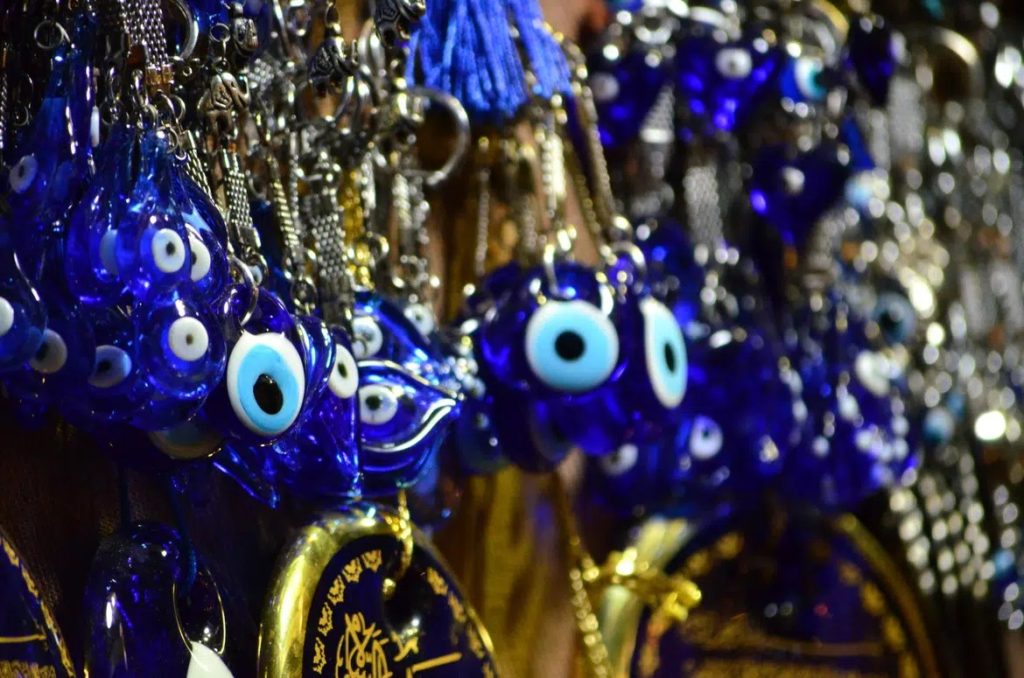In the vibrant tapestry of Turkish culture, one symbol stands out for its profound significance—the Nazar Boncuğu, also known as the evil eye amulet. This small, eye-shaped charm, adorned in hues of blue and white, serves as a stalwart guardian against negative energies believed to emanate from jealous stares and envious intentions.
From the bustling streets of Istanbul to the serene countryside villages, the Nazar Boncuğu is a ubiquitous sight, adorning vehicles, pinned to the attire of infants, and gracing the entrances of homes, shops, and offices. Its protective aura extends beyond mere adornment; it’s an emblem of tradition and an unwavering belief in the power of safeguarding against the malevolent forces that lurk in the unseen.
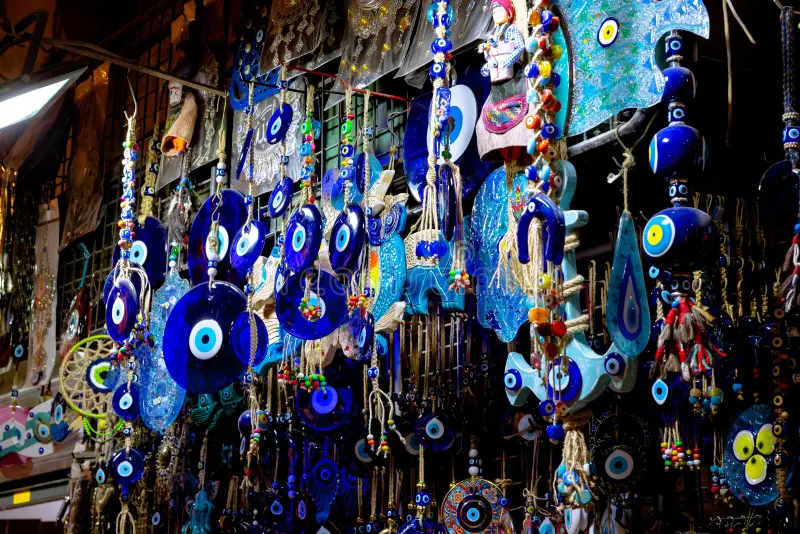
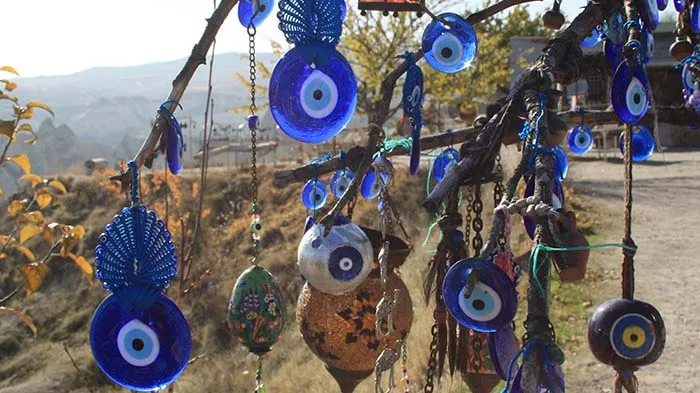
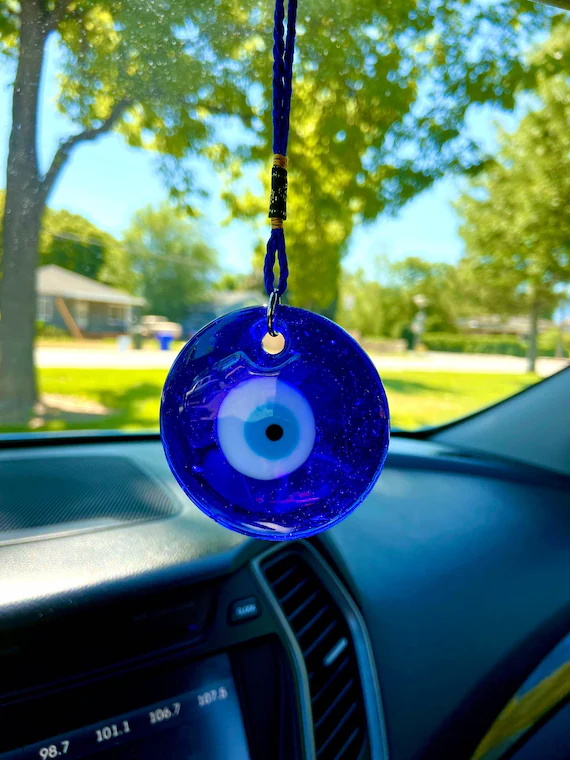
At its core, the belief in the Nazar Boncuğu is rooted in the ancient notion that envy and jealousy can manifest as harmful energies capable of causing misfortune and harm to individuals. Thus, the amulet functions as a potent talisman, deflecting these negative energies and ensuring the well-being of its bearer.
The versatility of the Nazar Boncuğu knows no bounds. Beyond its traditional role as a hanging ornament, it finds expression in various forms of jewelry, including bracelets, earrings, and necklaces, allowing individuals to carry its protective influence wherever they go.
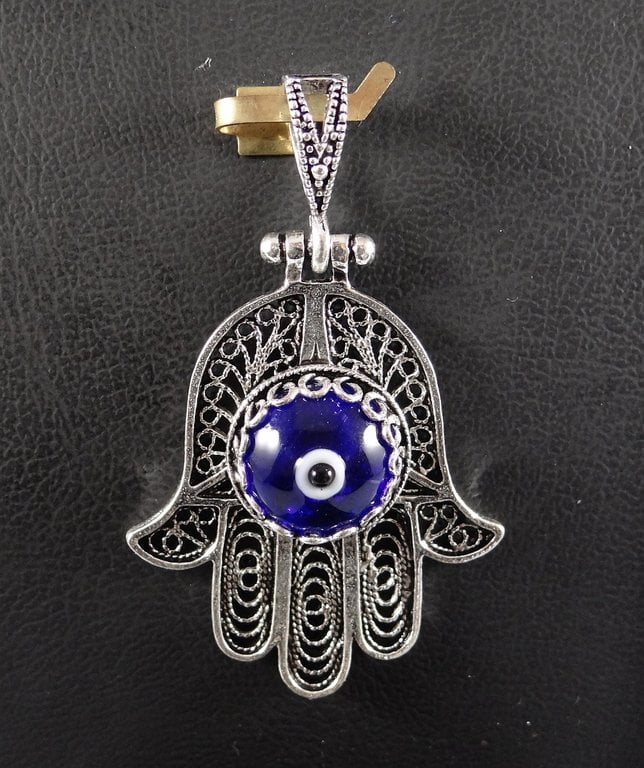
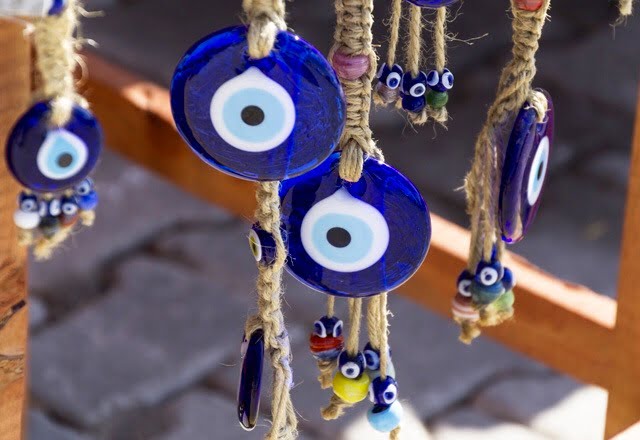
The significance of the Nazar Boncuğu extends beyond mere superstition; it’s deeply ingrained in the fabric of Turkish identity and serves as a tangible reminder of the interconnectedness between belief, culture, and protection. Its presence in everyday life speaks volumes about the resilience of tradition in the face of modernity, as generations continue to embrace its symbolism with unwavering faith.
Yet, like any guardian, the Nazar Boncuğu is not invincible. It is believed that if the amulet cracks or breaks, it has absorbed negative energies meant to harm its wearer. In such instances, it is customary to promptly replace it with a new one, ensuring continuous protection against the unseen forces that threaten to disrupt harmony and well-being.
Sources: Wikipedia/Culture Shock Turkey

